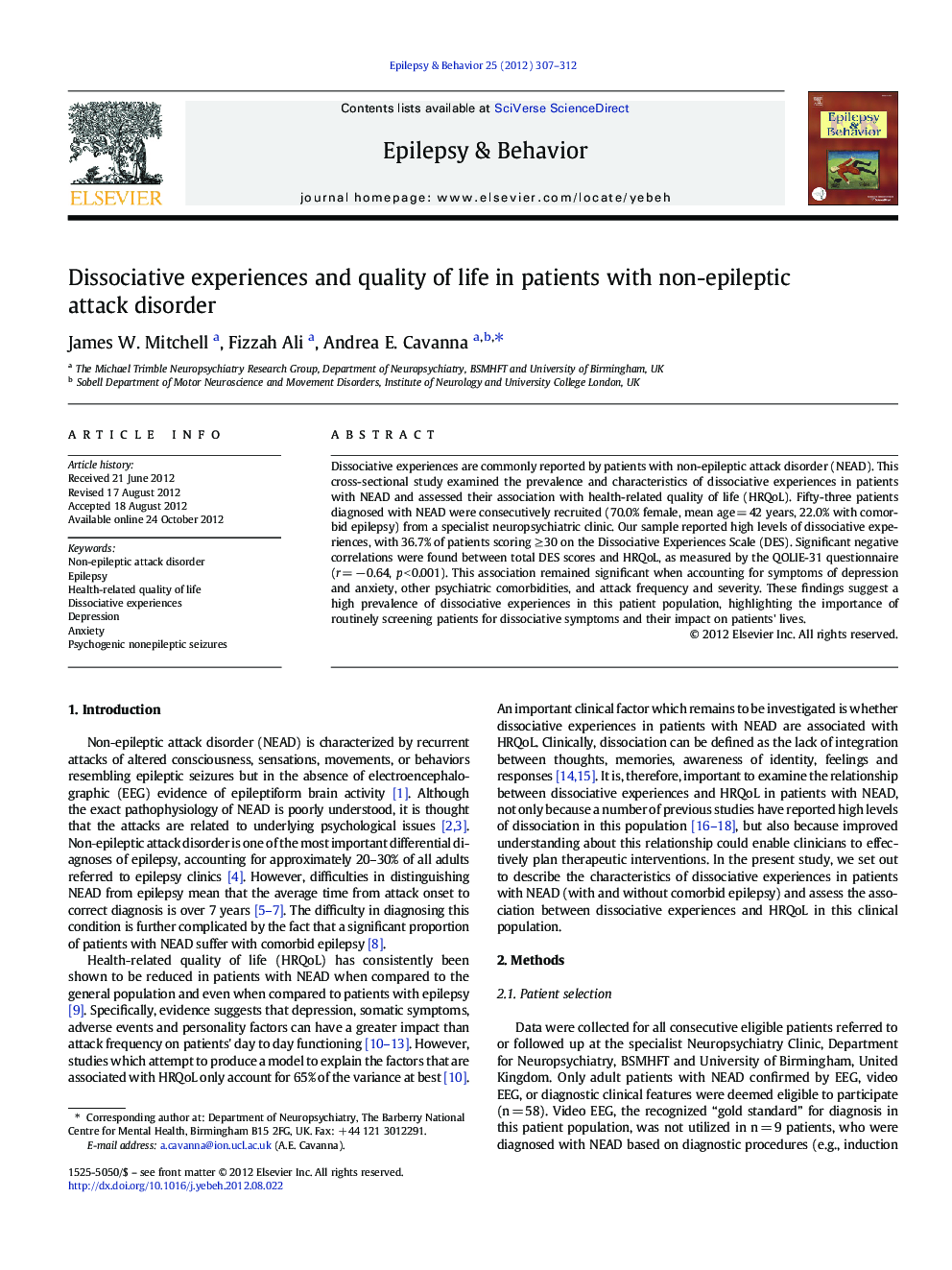| Article ID | Journal | Published Year | Pages | File Type |
|---|---|---|---|---|
| 6013291 | Epilepsy & Behavior | 2012 | 6 Pages |
Dissociative experiences are commonly reported by patients with non-epileptic attack disorder (NEAD). This cross-sectional study examined the prevalence and characteristics of dissociative experiences in patients with NEAD and assessed their association with health-related quality of life (HRQoL). Fifty-three patients diagnosed with NEAD were consecutively recruited (70.0% female, mean age = 42 years, 22.0% with comorbid epilepsy) from a specialist neuropsychiatric clinic. Our sample reported high levels of dissociative experiences, with 36.7% of patients scoring â¥Â 30 on the Dissociative Experiences Scale (DES). Significant negative correlations were found between total DES scores and HRQoL, as measured by the QOLIE-31 questionnaire (r = â 0.64, p < 0.001). This association remained significant when accounting for symptoms of depression and anxiety, other psychiatric comorbidities, and attack frequency and severity. These findings suggest a high prevalence of dissociative experiences in this patient population, highlighting the importance of routinely screening patients for dissociative symptoms and their impact on patients' lives.
⺠Dissociative experiences were common in our non-epileptic attack disorder sample. ⺠Dissociative experience scale scores were associated with qualityâofâlife scores. ⺠The association remained when accounting for symptoms of depression. ⺠All patients with non-epileptic attacks should be screened for dissociative symptoms.
